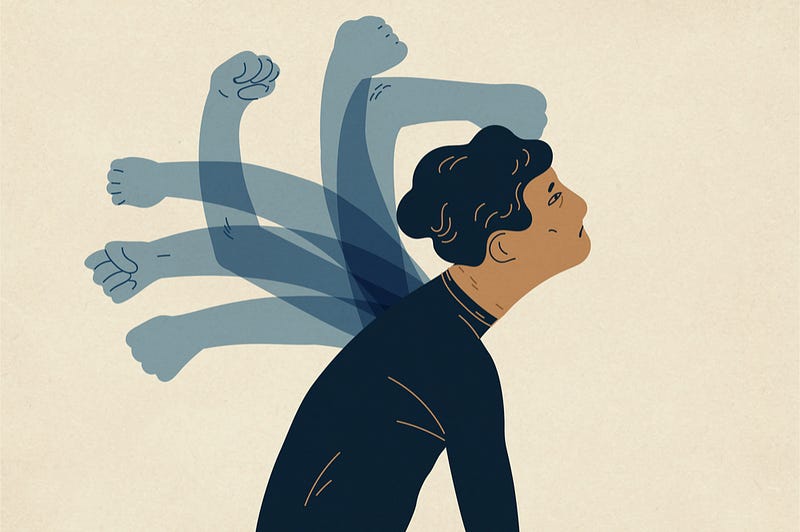Changing Behavior: Understanding the Right Approach to Growth
Written on
Chapter 1: The Fascination with Behavioral Change
The intricacies of behavior modification have always intrigued me. From my days as a young athlete, whether playing football or cricket, I was deeply invested in enhancing my performance. I studied the training methods of professionals, striving to replicate their success. In my late teens and early twenties, I was determined to improve my fitness. More recently, my focus has shifted to maximizing productivity and establishing a business that adds value and positively impacts lives.
A common refrain I often encounter about changing behaviors—both for personal improvement and assisting others—is the notion that all one needs is a stern push to overcome laziness. This perspective, however, is often ineffective for long-lasting change.
"I just need to give myself a kick up the arse and stop being lazy."
While context is essential, and there are moments when we must remind ourselves of our core values and aspirations, the methods we choose to motivate ourselves can be more constructive.
- Criticizing ourselves for a lack of effort (as implied by the need for a "kick up the arse") is not the answer.
- Labeling ourselves with negative terms like "lazy" only hampers progress.
What we genuinely require is greater self-compassion.
A prevalent concern about self-compassion is the fear of complacency.
- "What if I become too comfortable with my current state?"
- "What if I don't want to accept certain aspects of myself or my situation?"
- "Could excessive kindness lead to a lack of ambition?"
These apprehensions, while understandable, often stem from misconceptions regarding self-compassion. The concept of "fierce self-compassion" emphasizes fulfilling our needs, which may sometimes involve facing discomfort with the knowledge that it will ultimately lead to better outcomes—aligning us with our desired selves.
It's vital to recognize the false dichotomy that suggests we must choose between self-kindness and ambition. In reality, pursuing high standards while simultaneously embracing our imperfections is not only possible but beneficial.
Moreover, this balanced approach significantly enhances our chances of achieving our goals and enriches our experience throughout the journey.
In the video, "How to Change Your Behavior for the Better," Dan Ariely discusses effective strategies for modifying our habits and the psychology behind making lasting changes. This insightful talk complements the idea that understanding our motivations can lead to better outcomes.
Section 1.1: The Misconceptions of Self-Compassion
Understanding self-compassion is crucial in dispelling fears associated with it. Many worry that being kind to oneself may lead to a lack of motivation. However, research indicates that self-compassion can foster resilience and drive rather than diminish ambition.
Subsection 1.1.1: The Role of Kindness in Personal Growth

Section 1.2: Embracing Imperfection
Recognizing that perfection is unattainable opens the door to self-acceptance. By allowing ourselves to strive for excellence while acknowledging our limitations, we create a healthier mindset that supports growth.
Chapter 2: Challenging Common Beliefs About Behavior Change
In the TEDx talk "Three Myths of Behavior Change," Jeni Cross uncovers misconceptions about the process of changing habits. This presentation aligns with the discussion on self-compassion, illustrating how understanding our beliefs can enhance our ability to evolve.